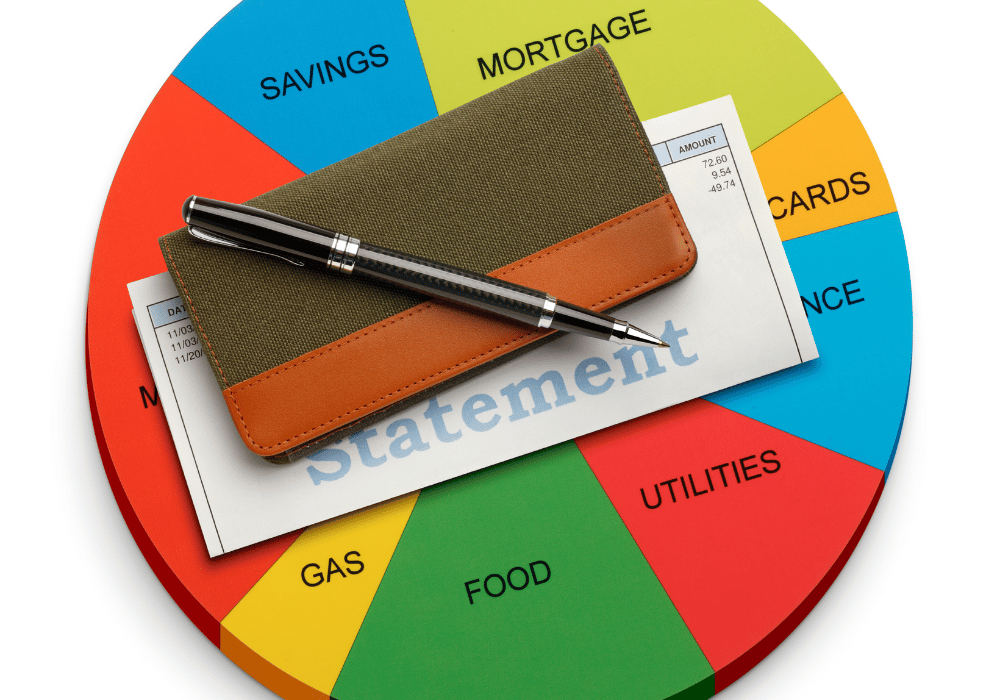Managing your household budget might feel like a daunting task, but it doesn’t have to be. A thoughtfully crafted budget can do more than optimize your spending habits. It can significantly reduce stress and pave the way for financial peace of mind. By building financial organization into your daily life, you’re not just saving money; you’re gaining control over your future. This article is your comprehensive guide to understanding how establishing a household budget can help you reduce stress, set clear goals, and boost your savings. You’ll learn how to get started, create a realistic budget, and stay on track, all while ensuring it aligns with your unique financial needs and goals.
Identifying Your Current Financial Status
Before creating an effective household budget, the first step is to understand where you currently stand financially. Taking a clear-eyed look at your income, expenses, and overall financial health will set the foundation for your budgeting plan.
 Tracking Income and Expenses
Tracking Income and Expenses
Start by calculating your total household income. This includes salary, side gigs, investment income, and any other sources of revenue. Understanding your cash inflow gives you a realistic perspective on how much you can allocate towards savings or expenses.
Next, document every expense, no matter how small. By tracking every bill, subscription, grocery run, and coffee purchase, you’ll quickly see where your money is going. Digital expense trackers like Mint, PocketGuard, or YNAB (You Need A Budget) make this process easier and more accessible.
Calculating Net Worth
Your net worth is a snapshot of your financial health. Simply subtract your total debts (e.g., credit cards, loans, or mortgages) from your total assets (e.g., cash savings, property, investments). A positive net worth is ideal, but if yours is currently in the red, don’t panic! Understanding this number empowers you to set tangible goals for improvement.
Setting Realistic Financial Goals
Once you’ve assessed your financial status, it’s time to outline goals. Goals provide the motivation behind any successful budget. They give your financial plan purpose and direction.
Short-Term vs. Long-Term Goals
Short-term goals may include saving for a holiday or an emergency fund, while long-term goals often center around larger milestones like buying a home, starting a business, or retiring comfortably. Defining both types of goals ensures that you balance immediate needs with your future ambitions.
Aligning Goals with Values
Make sure your financial goals reflect your values and priorities. If fostering family experiences is important to you, prioritize saving for vacations. If financial stability is a big stressor, focus on eliminating debt and building an emergency fund. When goals align with your values, staying committed becomes easier.
Creating a Practical Household Budget
Now that you’ve assessed your finances and defined your goals, it’s time to build a practical household budget that works for your household. A good budget isn’t restrictive; it’s empowering and aligns with your lifestyle.
Choosing a Budgeting Method
Select a budgeting framework based on what feels manageable and makes sense for your life. A few popular options include:
- 50/30/20 Rule: Allocate 50% of your income to needs, 30% to wants, and 20% to savings or debt repayment.
- Zero-Based Budgeting: Every dollar in your budget is given a specific job, ensuring no money is left unaccounted for.
- Envelope System (Physical or Digital): Divide up your budgeted amounts into “envelopes” (like groceries, bills, and entertainment). Once the envelope is spent, you can’t exceed it.
Allocating Funds Effectively
When dividing your income, consider first covering essentials like housing, utilities, and groceries. Then address debt repayment, savings, and discretionary spending. Balancing these categories ensures that every dollar is optimized without compromising your basic needs.
Strategies for Sticking to Your Household Budget
Creating a household budget is one thing; sticking to it is another. Here are strategies to help you stay on the path to financial success.
 Tips for Avoiding Overspending
Tips for Avoiding Overspending
- Delay Gratification: Wait 24 hours before making non-essential purchases to determine if you truly need them.
- Use Cash for Discretionary Spending: Studies show you’re less likely to overspend when using physical money rather than tapping your card or phone.
- Set Spending Boundaries: Limit temptation by unsubscribing from retailer emails or avoiding unnecessary shopping trips.
Using Technology to Track Progress
Apps like YNAB, Empower, or Goodbudget allow you to track your spending in real-time. Most link directly to your bank account or credit cards, making it easier to monitor your progress and identify areas for improvement.
Monitoring and Adjusting Your Budget
Your budget is meant to evolve as your life changes. Regularly reviewing and tweaking it ensures you stay on track and prepared for the unexpected.
Evaluating Budget Performance
Every month, review your financial activity against your budget plan. Did you stick to your spending goals? Are you allocating enough to your savings? Look for patterns in your spending that may signal necessary changes.
Making Necessary Adjustments
If you notice certain categories are over or underfunded, adjust accordingly. Maybe unexpected expenses have increased, or you realize you can cut back on dining out. A little flexibility ensures your budget stays relevant and effective.
Creating and sticking to a budget is one of the most impactful steps you can take to reduce financial stress and boost savings. By understanding your financial situation, setting achievable goals, and leveraging tools to build and refine your household budget, you can take charge of your money like never before. Remember, budgeting is not just about numbers—it’s about creating a life that reflects your priorities and values. With practice and discipline, you can transform your financial habits, gain peace of mind, and achieve your dreams. Start today and experience the difference it can make.

